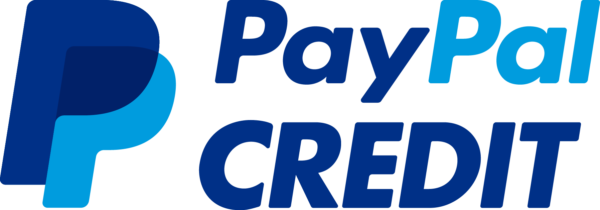Agile Project Management (AgilePM®) Qualification
What is the Agile Project Management (AgilePM®) Foundation & Practitioner course?
The Agile Project Management (AgilePM®) Foundation and Practitioner qualification is the world's leading framework and certification for Agile project management. It offers a practical and repeatable methodology that achieves an ideal balance between the standards, rigour and visibility required for good project management, and the fast-pace, change and empowerment provided by Agile. This course covers the underpinning philosophy and principles of Agile, the lifecycle of an Agile project, including alternative configurations, and the products produced during an Agile project and their purpose. You'll also cover the techniques used and their benefits and limitations, and learn the roles and responsibilities of individuals within an Agile project.
This certification will help you to appropriately configure the lifecycle of an Agile project to a given scenario. You'll know how to identify and apply popular Agile techniques in a project situation, including MoSCoW prioritisation, iterative development and timeboxing. You'll understand and assign roles and responsibilities within an Agile project. Understand how to test, estimate and measure progress in an Agile project and know how to describe and apply the Agile approach to managing requirements.
Who is the AgilePM qualification for?
This qualification is for practising project managers, Agile team members looking to become Agile Project Managers, Individuals pursuing the AgilePM Practitioner Certificate and more.
For the learning outcomes and assessment criteria, download the Agile Project Management Syllabus here.
Please see below a preview from the Agile Project Management handbook.
AgilePM Benefits
- A globally recognised certification.
- Deliver quicker, cost-effective and high-quality change by implementing a tried and tested approach to agile project management
- Understand the background of agile in project management and the differences compared to traditional / alternative approaches
- Apply the underpinning philosophy and principles of AgilePM in a project situation
- Become an informed member of a project team using DSDM and AgilePM practices
- Complimentary 3-month membership with the Agile Business Consortium
- Enhance your CV and boost future employment prospects
- Understand the mechanisms for governance & control of an Agile project
- Become an informed member of a project team using DSDM and AgilePM practices
- Boost communication & stakeholder engagement skills; critical for successful projects
- And so much more...
Accreditation / Qualification(s) offered
Successful completion of this course will mean you will be awarded the;
Agile Project Management Foundation certification (does not expire) and,
Agile Project Management Practitioner certification (valid for 5 years).
APMG Online Exam
Foundation Exam – 40-minute multiple choice closed-book online exam. There is a total of 50 questions to answer broken down into four sections. 25 marks required to pass (out of 50 available) – 50%.
Practitioner Exam – 2.5 hours restricted open book exam – Only the official AgilePM manual may be used in the exam. There is a total of 4 questions each worth 20 marks. 40 marks are required to pass (out of 80 available) – 50%.
Course Resit Policy
We have a ‘FREE course resit policy’ for anyone who unfortunately does not pass their exam, all we require is that you pay for your exam resit. You can then attend the next AgilePM course for FREE!
Please contact your course organiser to discuss.
What this Course Includes
This price includes course registration and exam registration, course materials and, if successful in passing the exam, an official Agile Project Management Foundation and Practitioner certification.
When you qualify with AgilePM® you also get 3 months' free associate membership of the Agile Business Consortium, the professional body for business agility!
The APMG International AgilePM and Swirl Device logo is a trademark of The APM Group Limited, used under permission of The APM Group Limited. All rights reserved. AgilePM® is a registered trademark of Agile Business Consortium Limited. All rights reserved.
Delivery method:
 Virtual ClassroomInstructor-led course
Virtual ClassroomInstructor-led course- Register your interest
- This is a virtual course with a live instructor. It includes interaction and group-work to embed learning. We encourage use of cameras, and have regular breaks to maintain freshness and engagement.
£1,600.00 excl. VAT
- Small Classes
- Free Course Resit
- Both Exams Included
- APMG Certificate
- 5 Year Certification
 0% interest for 4 months with PayPal Credit. Find out more
0% interest for 4 months with PayPal Credit. Find out more
All prices are per person and exclude VAT.
- Deliver quicker, cost-effective and low risk change by embracing a tried and tested agile approach to project management
- Understand the background of agile in project management and the differences compared to traditional / alternative approaches
- Adopt the core principles, concepts and processes required for successful agile projects
- Apply the AgilePM approach to projects and embrace an evolutionary development approach for more effective solutions
- Boost communication and stakeholder engagement skills critical for successful projects
- Understand the different management styles needed for successful agile projects compared to traditional projects
- Become an informed member of a project team using AgilePM practices.
There are no entry requirements for this course as the AgilePM Foundation level will be covered in the first 3 days.
The Foundation element of this course will cover:
- The underpinning philosophy and principles of Agile
- The lifecycle of an Agile project, including alternative configurations
- The products produced during an Agile project and their purpose
- The techniques used and their benefits and limitations
- The roles and responsibilities within an Agile project
The Practitioner element of this course will cover:
- How to apply a variety of agile practices to a project, for example, workshops, the MoSCoW technique to define project priorities, iterative development and modelling
- How to test, estimate and evaluate profit delivery in an Agile project
- Facilitation and support mechanisms within an Agile project
- The agile approach to manage and prioritise requirements
Upcoming dates for Agile Project Management (AgilePM®) Foundation & Practitioner Training | APMG Qualification
All prices are per person and exclude VAT.
VAT will be calculated at checkout.